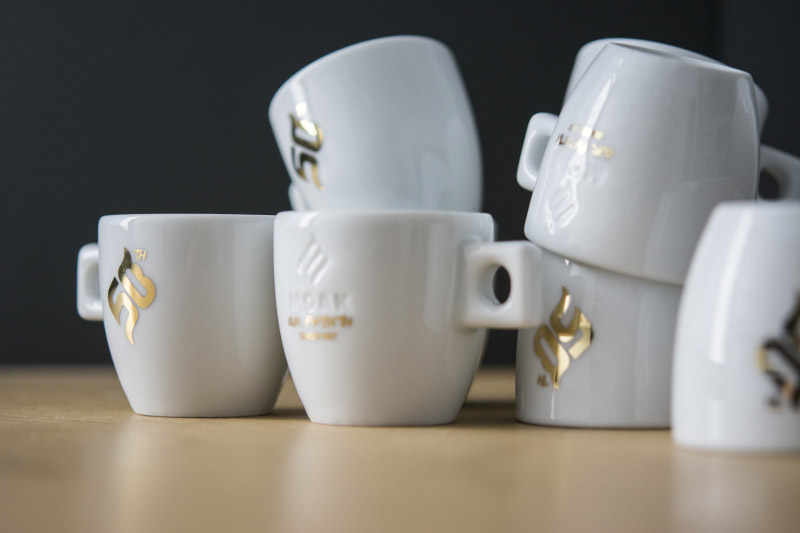2017 is the year of Moak’s 50th anniversary. We would like to celebrate this event with our readers by telling our story through the eyes and soul of its protagonists, tracking down anecdotes and statements of those who experience this story and continue to do so.
In the previous issue* we told you about how Giovanni Spadola’s passion for coffee started. We were in the late 1970s, and in the following decade Moak would continue its ascent thanks to the nth intuition of its founder.
The decade 1977-1987
“Risk is a basic element both in life and business. If you don’t take risks you won’t achieve anything”. Richard Branson
Precisely ten years after having founded Moak, Giovanni Spadola was more and more convinced that one had to take risks to gain success. In 1976 in Brazil, one of the world’s largest producers of coffee, a severe frost caused a huge loss of green coffee production. As a consequence, prices increased massively. “I thought – he tells – that this could be an opportunity – maybe a crazy one – which in the end turned out to be successful. I bought so much coffee that it would have lasted at least four years for my business. Partly thanks to the trust I got from banks, I stored the product in a period of crisis and started to sell green coffee to other roasting companies and importers”. He earned a lot and immediately invested the money in new machinery and a new place. It was time to move from the alley in Modica Alta. As much as the bond with those jagged streets and the house he was born in was strong, more space and easier access was needed. He chose the new part of the city Modica Sorda, which today is the residential quarter few steps from the commercial district. People still long for the scent of roasted coffee they used to wake up with every morning. In 1979, offices, production and warehouse measuring 500 sq m were ready to welcome the new Moak. Alessandro – who was around 11 years old at that time – was starting to experience his father’s new office and the company with the eyes of an aspiring businessman rather than a child. “Every afternoon – Giovanni Spadola says – he used to come with me to work and do his homework at my desk. He said he would be able to study and concentrate in the roasting company. Besides the happiness to have him beside me, I was seeing the future of Moak in his eyes. As soon as he finished his homework, he would come down to the production area fascinated by the round waves the coffee beans as they were slowly moving in the roaster, and he would then go home impregnated with the scent of coffee”.
In the mid-eighties, Giovanni could afford to leave the company for some weeks, also thanks to the fact that he hired new collaborators, and travel to the producing countries. He wanted to see the luxuriant berries from which to extract the best coffee beans with his own eyes and touch them with his hands.
“My first trip to the plantations – he says nostalgically – was in São Paulo, in Brazil. It was in 1985, if I well remember. I very well recall that it took us four hours with the bus and a nice walk on a dirt road to reach the fazenda. I have an unforgettable memory about how amazed I was in seeing those plants in the favelas, intoxicated by the scents of coffee mixed with citrus fruits, spices and chocolate. Unfortunately, in these places, similar to other producing countries I visited, you come up against a different social and political reality. Brazil had just come out from the centuries-old dictatorship regime, and social discriminations were still very strong. I also have a bad memory of that trip: one evening, I had been invited to an international conference about coffee. Around midnight, a command of around thirty armed people raided the hotel we were staying in and held the staff and some guests hostage. My wife and I were in our room. All of us were plundered, but fortunately they only wanted to clean out the safes. Many more trip followed after that one, and I still keep good memories and strong feelings when I think about them.”

